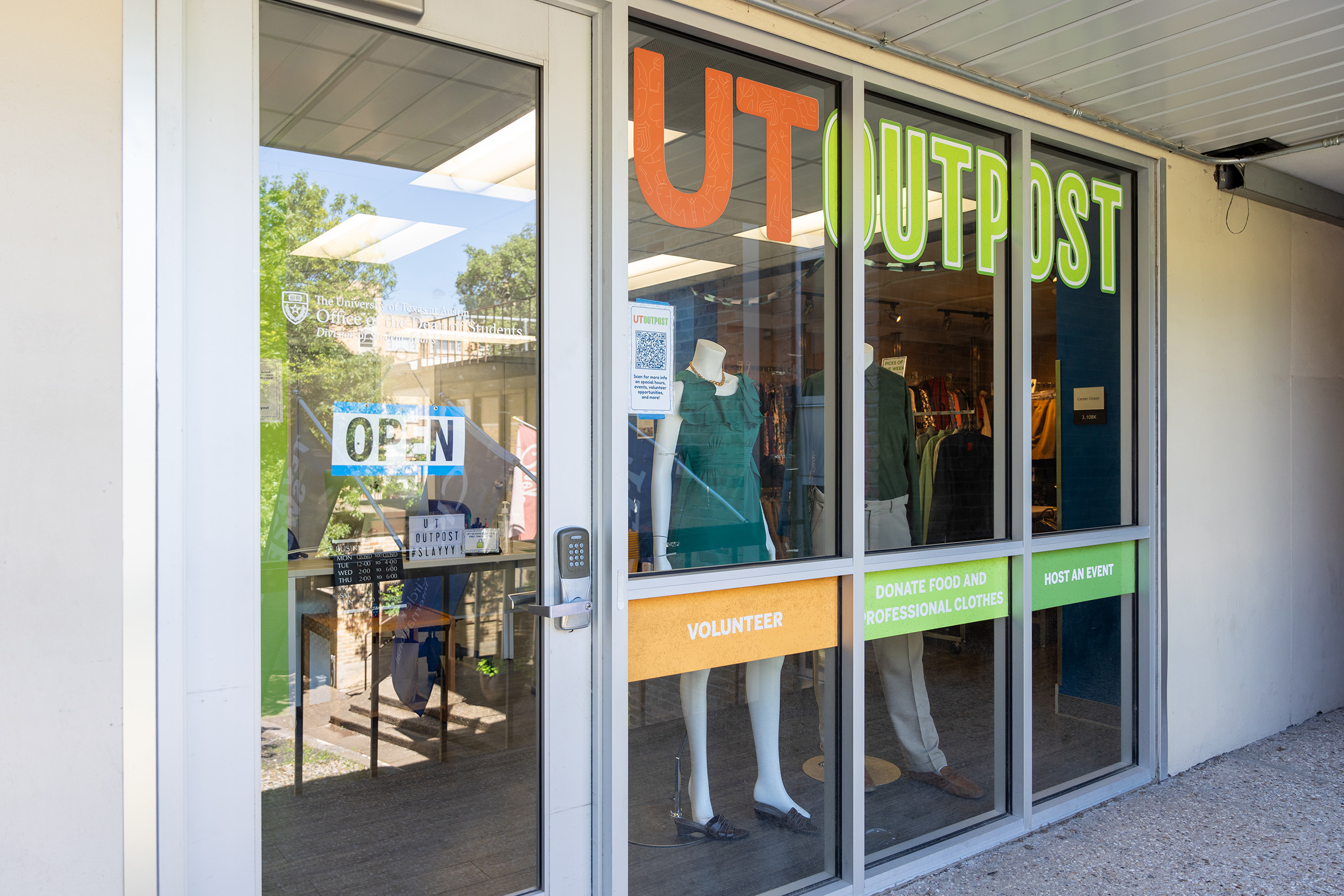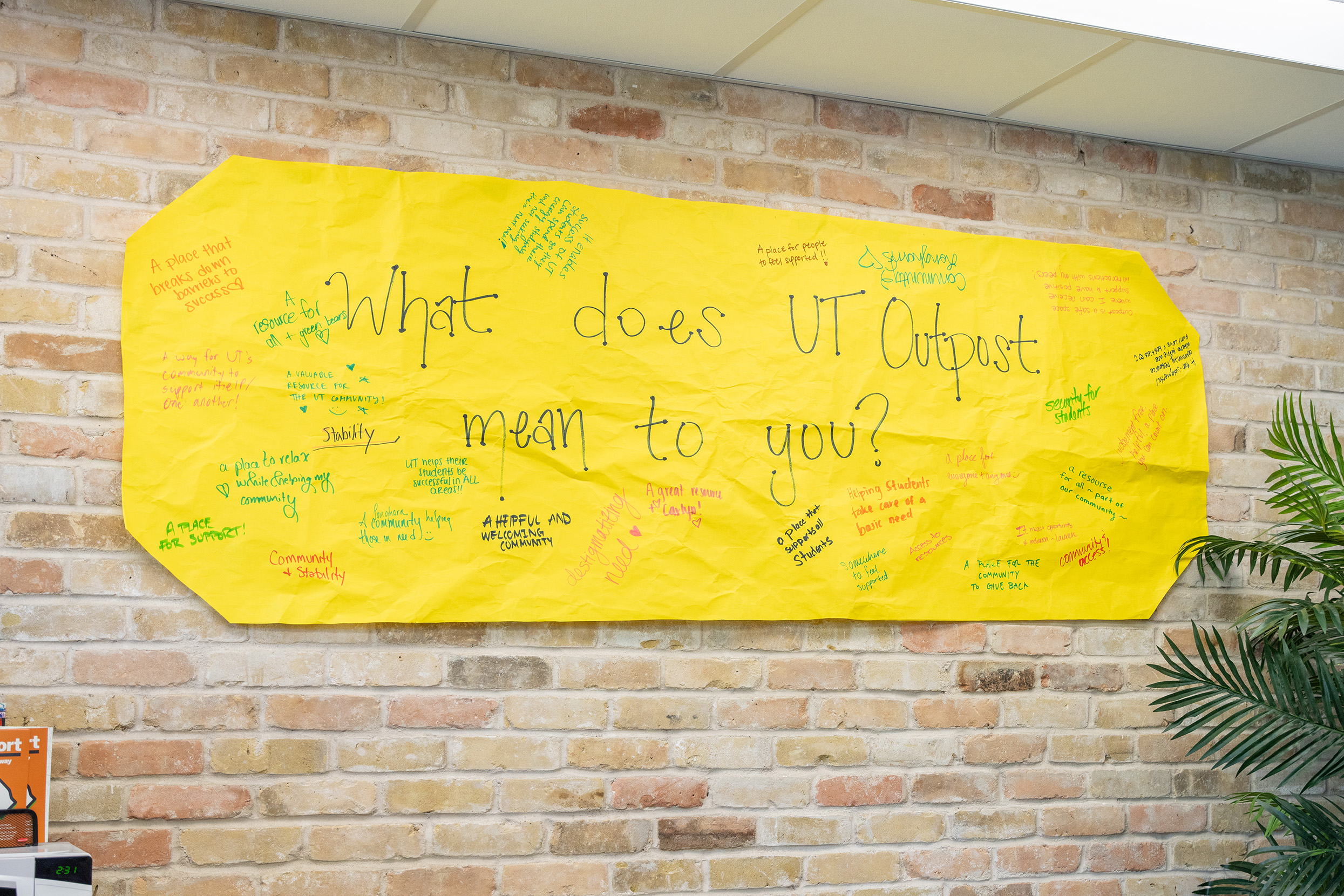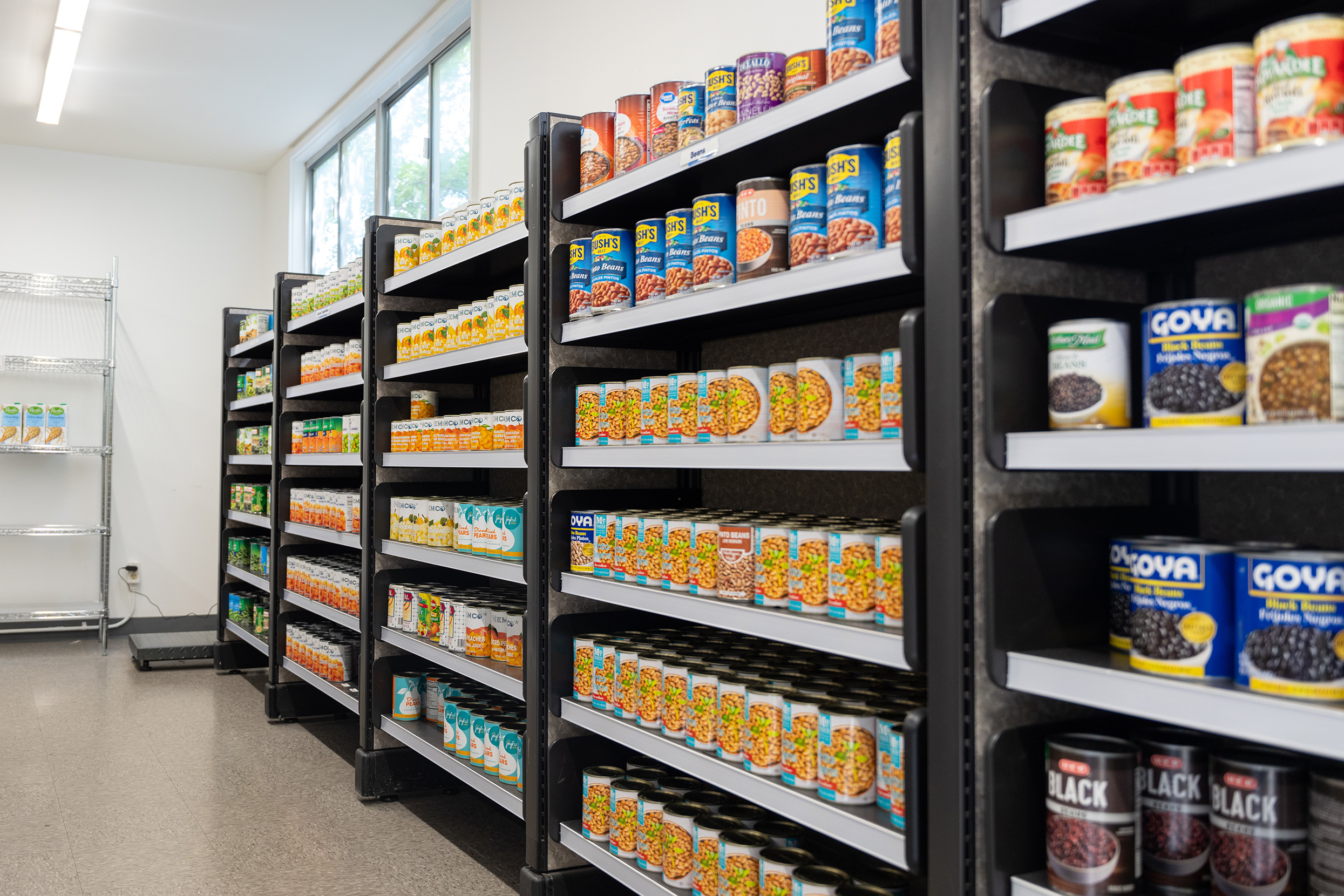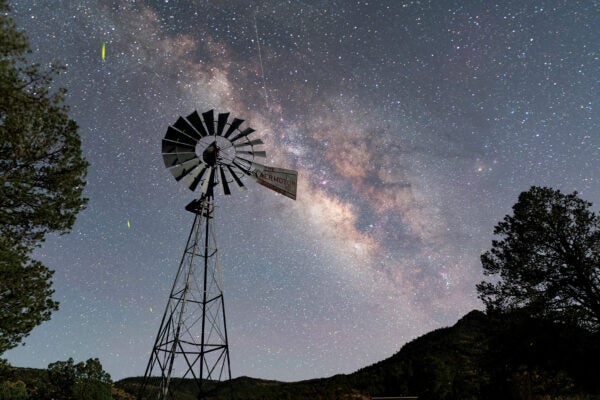Tall black-and-silver shelving units line the wall, filled with row upon row of canned goods neatly arranged so their labels face front and center. Carrots, green beans, peaches, pears, ravioli and chicken noodle soup. Black beans, pinto beans, baked beans and butter beans. Other shelves are stocked with macaroni and cheese — including varieties for those with dairy- or gluten-free diets — and blue plastic baskets brimming with that college staple: ramen noodles.
Unlike the usual grocery store, one area features racks of slacks, skirts, ties, scrubs and other professional clothing, grouped by “masculine” or “feminine” styles. And, it’s free to all students.
UT Outpost, located on University Avenue next to the Student Services Building, opened in 2018 as an on-campus food pantry and soon grew to include a career clothing closet. The resource is almost fully operated by students and volunteers. Valeria Martin, the University’s assistant director for basic needs, has been in charge of UT Outpost for over three years.
“It is really inspiring to me that the students that are here every day care about serving their peers and helping others, and they bring a lot of fun into our space. They make my day way more exciting,” Martin says. “They pull me away from my computer, which is very OK with me. It is so much fun to spend time with them and see the great things that they’re doing.”
Martin, originally from Northern California, attended Saint Mary’s College of California before coming to UT to pursue a master’s degree in educational leadership and policy.
“I distinctly remember walking on the campus and feeling like, ‘Oh my gosh, this is a big university.’ It just felt so big coming from a small, little college,” Martin says. “In the program that I was in with educational leadership and policy, I really valued what we learned in that setting, that the faculty really cared about giving us a well-rounded education and talking a lot about social justice and how students are impacted in different ways.”
Martin started her career at UT as a complex coordinator in 2019 and became UT Outpost coordinator in 2021 in the midst of the COVID-19 pandemic. Martin helped the location return to its original in-person operations.
“We essentially spent a year-ish going back to a regular walk-in shopping model. And that’s where we’re at today,” Martin says. “Students can walk in five days out of the week. We’re open to shop in either the food pantry or the career closet. We’ve really been able to home in on what the day-to-day operations are here while continuing to grow, whether in life, student-led initiatives, programs, events and bigger picture things.”

When Martin looks toward the future, she is optimistic. Currently, UT Outpost is looking at ways to guide qualifying students so they can receive Supplemental Nutrition Assistance Program benefits, which are often referred to as food stamps.
“Something that we’re going to be doing, hopefully very soon, is being able to offer advice to students on the SNAP benefits process,” Martin says. “Many students are eligible for it but just don’t know or have no idea how to navigate the process. It can be really complicated. I’m getting together a group of staff members trained so that we could be certified and able to advise students through that process.”
During emergency situations in the past, such as the Texas power grid blackouts in February 2021, the UT Outpost closed. However, Martin hopes to eventually create emergency food bags to be handed out to students in need during those times.
“That can often be times when students might need us the most,” Martin says. “The goal is to have a stock of bags of food that contain essential food items that would be helpful to have on hand in an emergency and divide those out around campus in spaces that do remain open when emergencies happen so that food can still get in the hands of students.”
Martin also has been trying to make sure that all students know that UT Outpost is an available resource. Emergencies or financial difficulties can happen at any time to anyone. As cited on the pantry’s website, the fall 2023 National College Health Assessment found that 43.7% of UT students had experienced food insecurity of some type. Martin’s team spreads the word about UT Outpost through tabling at campus events, giving presentations and asking faculty to include information about the pantry and closet on syllabuses.
“The more that we can get our community to know about this resource, they’ll be able to talk about it to students so we can get them (students) on board as early on as possible. Even if they don’t need us right away, maybe one day they will,” Martin said. “And as long as they know that we’re here, I think that’s the most important thing to me.”











